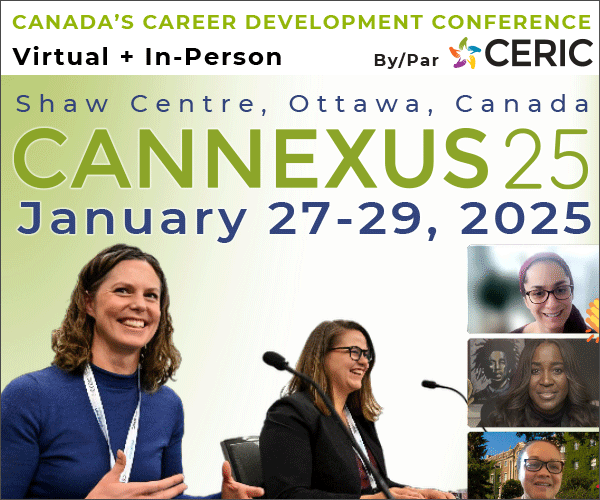Knowledge and Risk: Choices and Decisions in the Career Selection Process Among University Students
Keywords:
Knowledge, Risk, Choices, Career, Career selection, University Students, Post-secondaryAbstract
The processes and resources university students employ for their career planning have become more important in the contemporary globalized economy. Demand for higher levels of education along with fluctuations in job availability and security are influencing students’ vocational choices. One hundred eight students were surveyed on their choices of a career, informational and other resources supporting their choices. Four broad occupational categories were observed among student responses as potential career avenues. By making comparisons with similar recent surveys in Canada in terms of students’
use of resources, we make an attempt to assess the viability of their decisions with respect to employment projections, and conclude with notes on the policy implications within universities.
References
Beck, U. (1992). Risk society: Towards a new modernity. London: Sage.
Canadian Council on Learning (2007). Is it possible to accurately forecast labour Market Needs? Retrieved from http://books1.scholarsportal.info/viewdoc.html?id=/ebooks/ebooks0/gibson_cppc/2009-12-01/7/207760
Canadian Occupational Projection System (2014). Retrieved from http://www23.hrsdc.gc.ca/w.2lc.4m.2@-eng.jsp.
Canadian Occupational Projection System (2014). National Occupational Classification 414.Retrieved from http://www23.hrsdc.gc.ca/occupationsummarydetail.jsp?&tid=58.
Canadian Occupational Projection System (2014). National Occupational Classification 415. Retrieved from http://www23.hrsdc.gc.ca/occupationsummarydetail.jsp?&tid=59.
Canadian Occupational Projection System (2014). National Occupational Classification 421.Retrieved from http://www23.hrsdc.gc.ca/occupationsummarydetail.jsp?&tid=61.
Canadian University Survey Consortium (2012). Survey of Graduating Undergraduate Students. Retrieved from http://www.cusccreu.ca/publications/CUSC_2012_Graduating_Student_Survey_MasterR eport.pdf
Canadian University Survey Consortium (2013). First-Year University Student Survey. Retrieved from http://www.cusc-ccreu.ca/publications/2013_CUSC_FirstYear_master%20report.pdf
Canadian University Survey Consortium (2014). Middle-Years University Student Survey. Retrieved from http://www.cuscccreu.ca/publications/CUSC_2014%20MiddleYear%20StudentSurvey_Master%20Report.pdf
Chason, A.K., Bullock-Yowell, E., Sampson, Jr., J.P., Lenz, J.G. and Reardon, R.C. (2013). Relationships among career thoughts, career interests, and career decision
state. The Canadian Journal of Career Development/Revue canadienne de développement de carrière, 12. Retrieved from http://ceric.ca/cjcd/current/v12n1/Relationships%20among%20Career%20Thoughts.pdf
Crozier, S., Dobbs, J., Douglas, K. and Hung, J. (1999). Career counselling position paper. Canadian Association of College and University Student Services. Retrieved from http://www.cacuss.ca/_Library/documents/Career_FULL_English.pdf
Dietsche, P. (2013). Career planning in Ontario grade 10 students: Student perspectives. The Canadian Journal of Career Development/Revue canadienne de développement de carrière, 12. Retrieved from http://ceric.ca/cjcd/current/v12n2/Career%20Planning%20in%20Ontario%20Grade%2010%20Students.pdf
Giddens, A. (1991). Modernity and self-Identity: Self and society in the late modern age. Stanford: Stanford University Press.
Gordon, L. and Meyer, J.C. (2002). Career indecision amongst prospective university students. South African Journal of Psychology 32(4), 41-47.
Hango, D. (2013). Gender differences in science, technology, engineering, mathematics and computer science (STEM) programs at university. Insights on Canadian Society. Retrieved from http://www.statcan.gc.ca/pub/75006-x/2013001/article/11874eng.pdf
Human Resources and Social Development Canada and Association of Canadian Community Colleges (2007). Pan-Canadian study of first year college students: Report 1, student characteristics and the college experience. Retrieved from http://www.accc.ca/wpcontent/uploads/archive/pubs/studies/200708StudentStudy.pdf
Hung, J. (2002). A career development course for academic credit: An outcome analysis. Canadian Journal of Career Development 1(1), 22-26.
McQuillan, K.(2013). All the workers we need: Debunking Canada’s labour-shortage fallacy. School of Public Policy Research Paper, University of Calgary. Retrieved
Miner, R. (2010). People without jobs, jobs without people: Canada’s labour market future. Retrieved from http://www.minerandminer.ca/data/CO_PWJ_Brochure_CAN_2010_v4.pdf
Miner, R. (2014). The great Canadian skills mismatch: people without jobs, jobs without people and MORE. Retrieved from http://www.minerandminer.ca/data/Miner_March_2014_final%282%29.pdf
Organisation for Economic Co-operation and Development OECD (2002). Review of career guidance policies, Canada country note. Retrieved from http://www.oecd.org/canada/1963039.pdf
Statistics Canada, NOC 4214. Retrieved from http://www23.statcan.gc.ca/imdb/p3VD.plfunction=getVD&TVD=122372&CVD=122376&CPV=4214&CST=01012011&CLV=4&MLV=4
Truong, H. Q. T. (2011). High school career education: Policy and practice. Canadian Journal of Educational and Administrative Policy. Issue #123. Retrieved from http://www.umanitoba.ca/publications/cjeap/pdf_files/truong.pdf
Uppal, S. and LaRochelle-Côté, S. (2014). Over qualification among recent university graduates in Canada. Insights on Canadian Society. Retrieved from http://www.statcan.gc.ca/pub/75-006-x/2014001/article/11916-eng.pdf

Downloads
Published
How to Cite
Issue
Section
License

This work is licensed under a Creative Commons Attribution-NonCommercial-NoDerivatives 4.0 International License.














